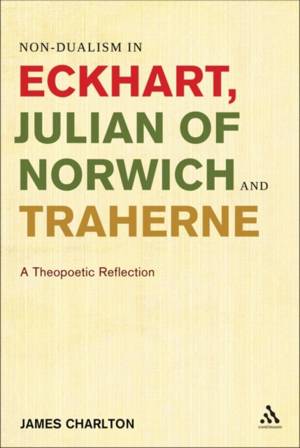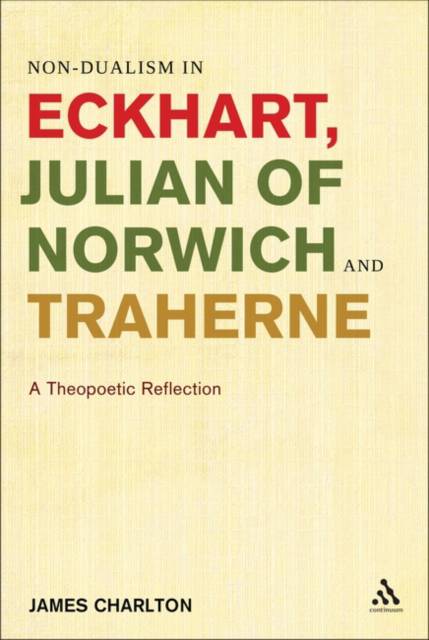
- Afhalen na 1 uur in een winkel met voorraad
- Gratis thuislevering in België vanaf € 30
- Ruim aanbod met 7 miljoen producten
- Afhalen na 1 uur in een winkel met voorraad
- Gratis thuislevering in België vanaf € 30
- Ruim aanbod met 7 miljoen producten
Zoeken
Non-Dualism in Eckhart, Julian of Norwich and Traherne
A Theopoetic Reflection
Charlton James, James Charlton
Hardcover | Engels
€ 322,45
+ 644 punten
Omschrijving
The words 'me, ' 'mine, ' 'you, ' 'yours, ' can mislead us into feeling separate from other people. This book is an exhilarating contribution to the spirituality of non-duality or non-separation. Meister Eckhart, Mother Julian of Norwich and Thomas Traherne are interpreted as 'theopoets' of the body/soul who share a moderate non-dualism. Their work is brought within the ambit of non-dual Hinduism. Specifically, their passion for unitive spiritual experience is linked to construals of both 'the Self' and 'Awakening', as enunciated by Advaita Vedanta.
Charlton draws on poetry, theology and philosophy to perceive fresh connections. A commonality of interest is proposed between the three Europeans and Ramana Maharshi. The concept of non-duality is basic to much of Asian religion. On the other hand, Christianity has usually ignored its own non-dual roots. This text contributes to a recovery, in the West, of the vital, unifying power of non-dual awareness and connectedness.
Charlton draws on poetry, theology and philosophy to perceive fresh connections. A commonality of interest is proposed between the three Europeans and Ramana Maharshi. The concept of non-duality is basic to much of Asian religion. On the other hand, Christianity has usually ignored its own non-dual roots. This text contributes to a recovery, in the West, of the vital, unifying power of non-dual awareness and connectedness.
Specificaties
Betrokkenen
- Auteur(s):
- Uitgeverij:
Inhoud
- Aantal bladzijden:
- 192
- Taal:
- Engels
Eigenschappen
- Productcode (EAN):
- 9781441152633
- Verschijningsdatum:
- 18/10/2012
- Uitvoering:
- Hardcover
- Formaat:
- Genaaid
- Afmetingen:
- 150 mm x 231 mm
- Gewicht:
- 430 g

Alleen bij Standaard Boekhandel
+ 644 punten op je klantenkaart van Standaard Boekhandel
Beoordelingen
We publiceren alleen reviews die voldoen aan de voorwaarden voor reviews. Bekijk onze voorwaarden voor reviews.







